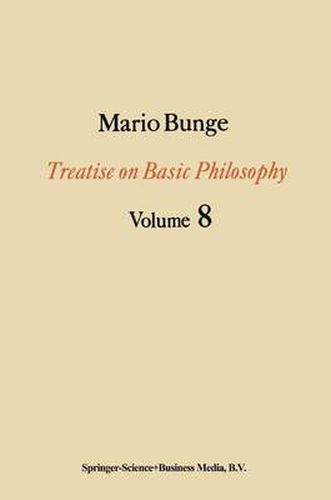Readings Newsletter
Become a Readings Member to make your shopping experience even easier.
Sign in or sign up for free!
You’re not far away from qualifying for FREE standard shipping within Australia
You’ve qualified for FREE standard shipping within Australia
The cart is loading…






This title is printed to order. This book may have been self-published. If so, we cannot guarantee the quality of the content. In the main most books will have gone through the editing process however some may not. We therefore suggest that you be aware of this before ordering this book. If in doubt check either the author or publisher’s details as we are unable to accept any returns unless they are faulty. Please contact us if you have any questions.
The purpose of this Introduction is to sketch our approach to the study of value, morality and action, and to show the place we assign it in the systemof human knowledge. 1. VALUE, MORALITY AND ACTION: FACT, THEORY, AND METATHEORY We take it that all animals evaluate some things and some processes, and that some of them learn the social behavior patterns we call ‘moral principles’, and even act according to them at least some of the time. An animal incapable of evaluating anything would be very short-lived; and a social animal that did not observe the accepted social behavior patterns would be punished. These are facts about values, morals and behavior patterns: they are incorporated into the bodies of animals or the structure ofsocialgroups. We distinguish theq the facts of valuation, morality and action from the study of such facts.This study can be scientific, philosophic or both. A zoologist may investigate the wayan animal evaluates environmental or internal stimuli; a social psychologist may examine the way children learn, or fail to learn, certain values and norms when placed in certain environments. And a philosopher may study such descriptive or explan atory studies, with a view to evaluating valuations, moral norms, or behavior patterns; he may analyze the very concepts of value, morals and action, as well as their cognates; or he may criticize or reconstruct value beliefs,moral norms and action plans.
$9.00 standard shipping within Australia
FREE standard shipping within Australia for orders over $100.00
Express & International shipping calculated at checkout
This title is printed to order. This book may have been self-published. If so, we cannot guarantee the quality of the content. In the main most books will have gone through the editing process however some may not. We therefore suggest that you be aware of this before ordering this book. If in doubt check either the author or publisher’s details as we are unable to accept any returns unless they are faulty. Please contact us if you have any questions.
The purpose of this Introduction is to sketch our approach to the study of value, morality and action, and to show the place we assign it in the systemof human knowledge. 1. VALUE, MORALITY AND ACTION: FACT, THEORY, AND METATHEORY We take it that all animals evaluate some things and some processes, and that some of them learn the social behavior patterns we call ‘moral principles’, and even act according to them at least some of the time. An animal incapable of evaluating anything would be very short-lived; and a social animal that did not observe the accepted social behavior patterns would be punished. These are facts about values, morals and behavior patterns: they are incorporated into the bodies of animals or the structure ofsocialgroups. We distinguish theq the facts of valuation, morality and action from the study of such facts.This study can be scientific, philosophic or both. A zoologist may investigate the wayan animal evaluates environmental or internal stimuli; a social psychologist may examine the way children learn, or fail to learn, certain values and norms when placed in certain environments. And a philosopher may study such descriptive or explan atory studies, with a view to evaluating valuations, moral norms, or behavior patterns; he may analyze the very concepts of value, morals and action, as well as their cognates; or he may criticize or reconstruct value beliefs,moral norms and action plans.